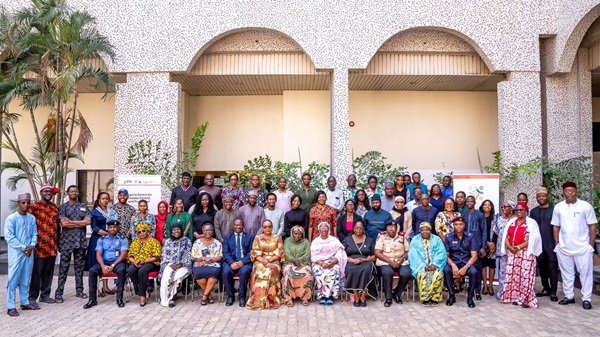
The Nigeria Centre for Disease Control and Prevention (NCDC) has emphasised the vital role of risk communication and community engagement in tackling Nigeria’s public health challenges.
Head of disease prevention and control at NCDC, Dr. Tochi Okwor spoke during the reopening meeting of the National Risk Communication Technical Working Group (NRCTWG) in Abuja on Wednesday.
Okwor highlighted the urgency of proactive measures to protect Nigeria from current and emerging health threats.
She recognised the foundational work of the first risk communication lead at NCDC, whose leadership facilitated the establishment of the NRCTWG in June 2018.
“This multi-sectoral platform has since played a pivotal role in coordinating responses to public health emergencies across various ministries, departments, agencies and partners,” she stated.
She pointed out the numerous health challenges the country continues to face, including annual outbreaks of Lassa fever, cholera, cerebrospinal meningitis and the escalating threat of antimicrobial resistance, which she referred to as the “silent pandemic.”
Okwor also raised alarms about looming threats such as the re-emergence of Ebola, the Marburg virus, and the ongoing response to human metapneumovirus.
“Our preparedness and response efforts depend on effective risk communication and community engagement. This is not just about sharing information but ensuring that the right information reaches the right people at the right time, fostering trust and mobilising action,” she explained.
She stressed the severe consequences of misinformation, citing the saltwater bath rumours during the Ebola outbreak and the conflicting narratives during the COVID-19 pandemic.
“These situations highlight the critical need for harmonised, evidence-based communication to manage health emergencies effectively,” she added.
Head of health promotion at the Federal Ministry of Health, Barr. Nma Ogbonna praised the efforts in risk communication, particularly regarding public health emergency surveillance at airports.
Ogbonna disclosed the ministry’s active involvement, including an information committee focused on risk communication.
However, she acknowledged gaps in formal reporting and emphasised the necessity for improved documentation and collaboration with international partners to strengthen Nigeria’s public health response.
Director of health and social care at the National Orientation Agency (NOA), Dr. Olufemi Ayoola expressed gratitude for past collaborations that have fostered growth.
Ayoola highlighted professional advancements within the team and reaffirmed the Agency’s commitment under new management to strengthen partnerships, including with NCDC, for ongoing public health progress.
Chief of animal health at the Federal Ministry of Livestock Development (FMLD), Mrs. Maureen Kojo announced that the ministry has notified all 36 states and the Federal Capital Territory (FCT) to remain vigilant and take preventive measures to avoid the spread of anthrax.
Kojo reported that a surveillance team has been deployed to the states, and RCCE activities have commenced to educate and raise awareness about the disease.
State facilitator at UNICEF, Mr. Yunus Amadou emphasised utilising the meeting to reflect on past achievements, identify areas for improvement and strategise for greater future impact.
Amadou acknowledged the hard work, collaboration, and commitment of stakeholders in protecting the health and well-being of Nigerians, urging continued collective efforts to make a difference.
Senior health correspondent at the News Agency of Nigeria (NAN), Ms. Racheal Abujah underscored the importance of transparent communication and accurate reporting in public health initiatives.
Abujah stated that collaborative efforts between NCDC, NOA, and international partners are crucial for building trust and ensuring effective risk communication, particularly during health emergencies.
Additionally, she highlighted the media’s role in disseminating clear, reliable information to the public, reducing misinformation, and driving community engagement to improve health outcomes in Nigeria.

